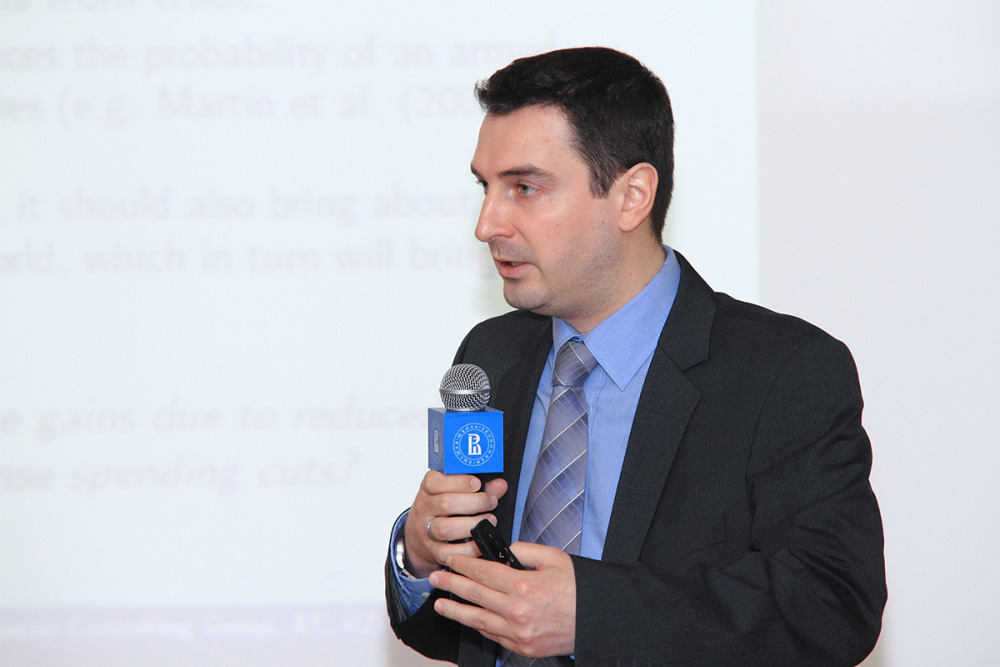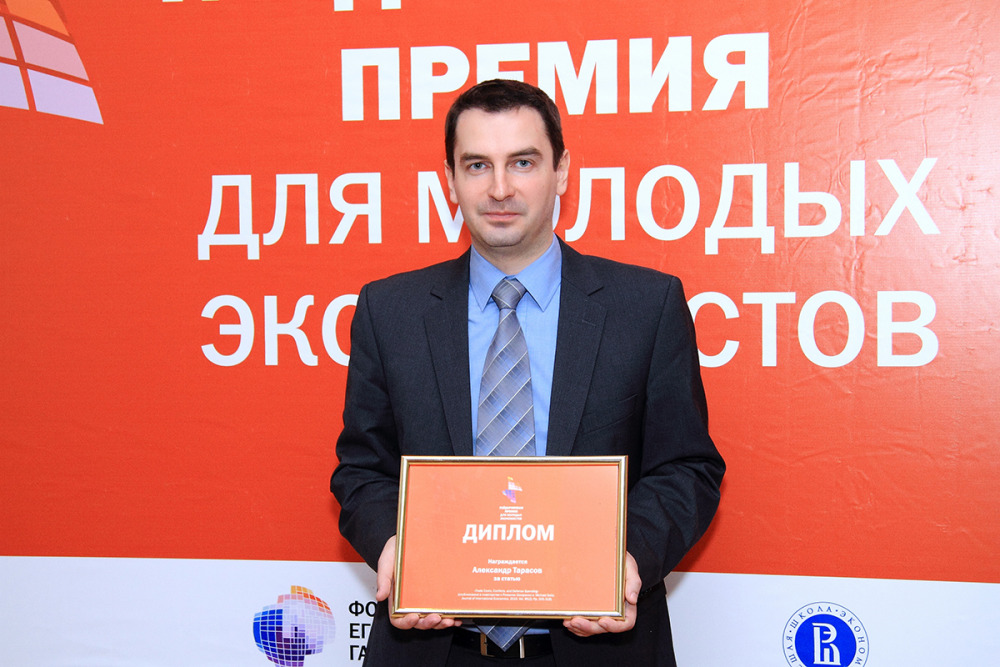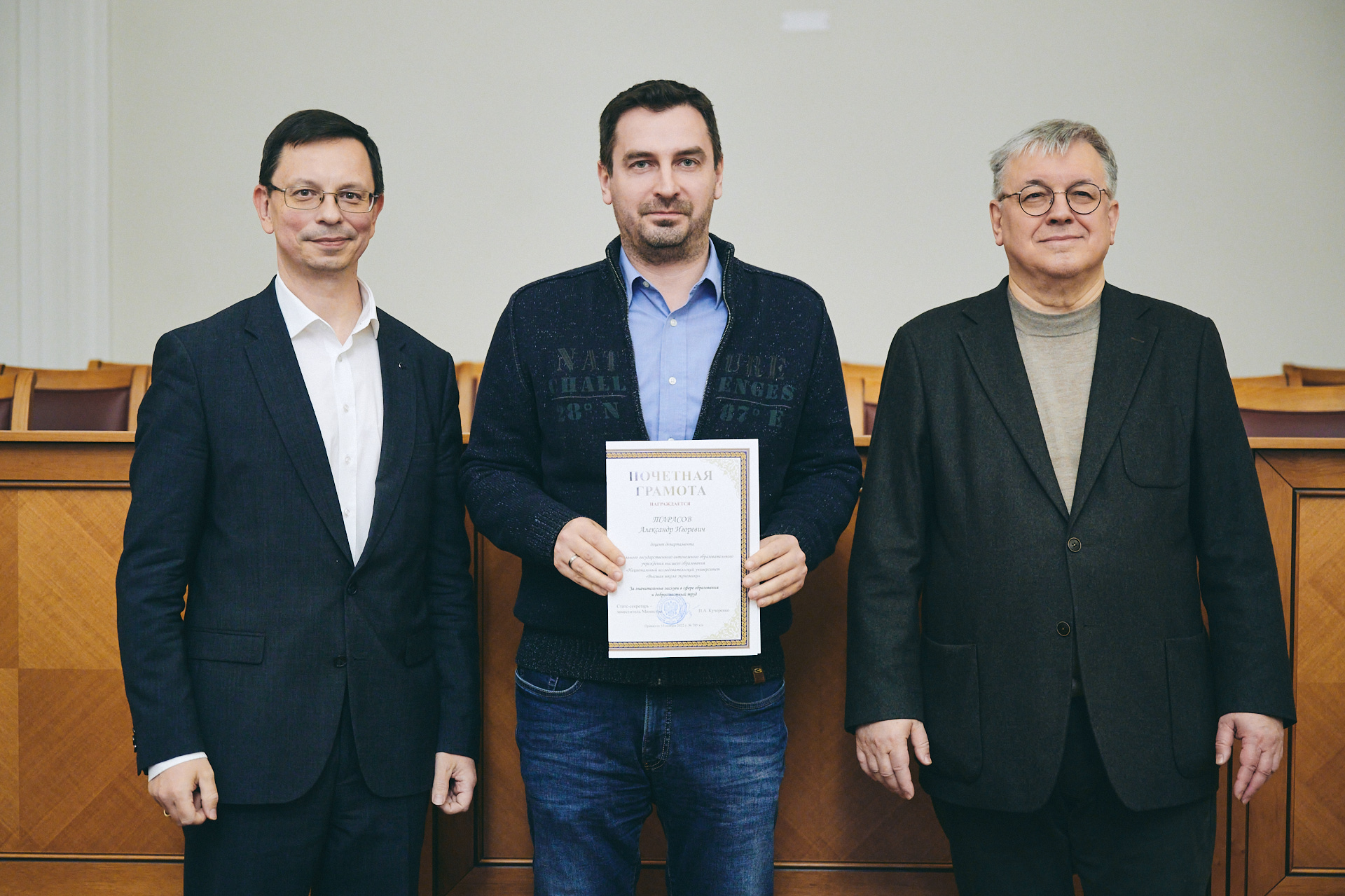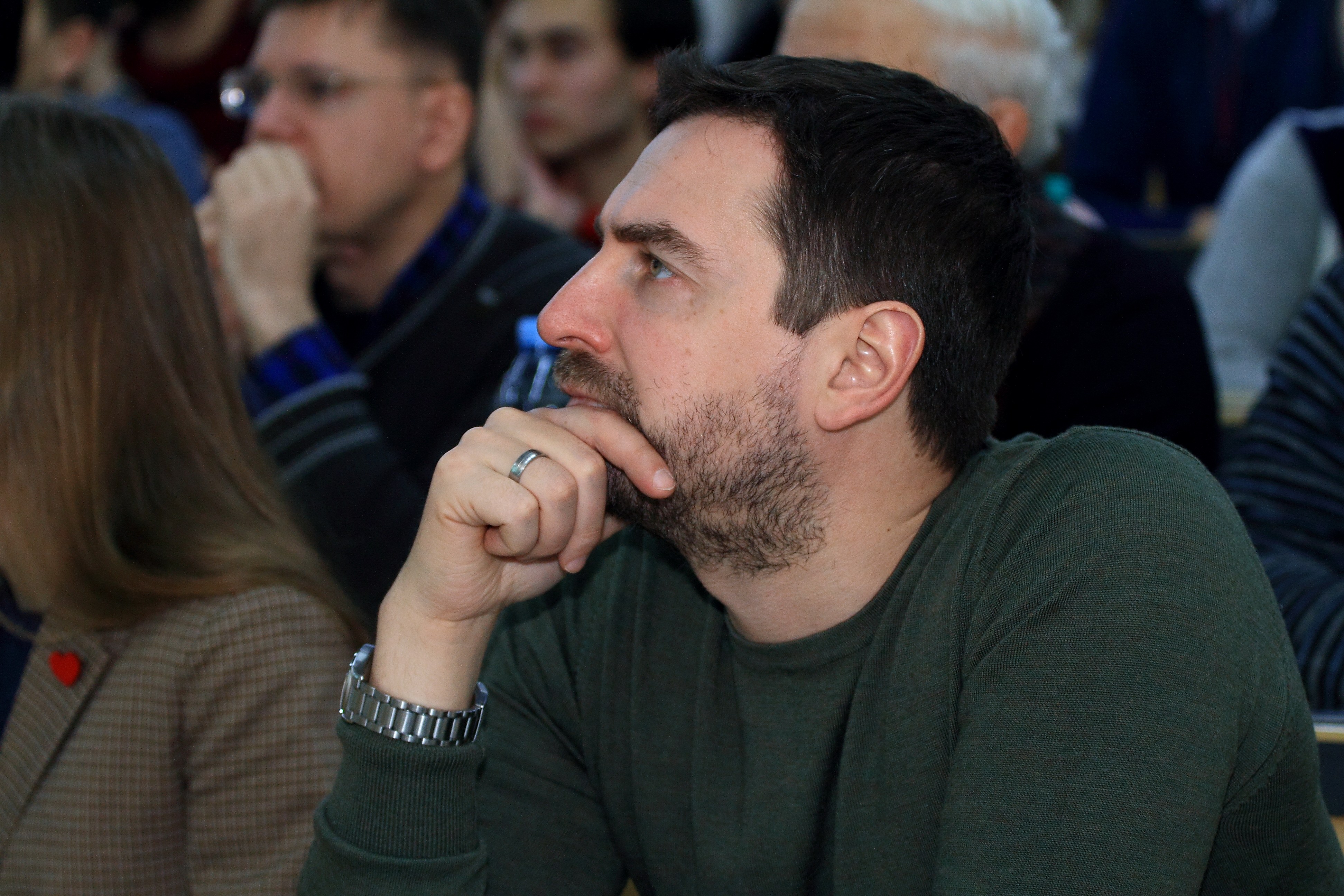‘If I'm Interested in a Research Question, I'm Ready to Work in a New Field’

Alexander Tarasov is the Head of the Department of Theoretical Economics at the Faculty of Economic Sciences (FES) and Leading Research Fellow at the Centre for Market Studies and Spatial Economics at HSE University-St Petersburg. In his interview, Alexander talks about the appeal of academia, the challenges that await graduate students, and his research into the impact of railroads on economic growth, affirmative action in university admissions, and much more.
— How did you end up in economics and academia?
— I studied at Lomonosov Moscow State University (MSU), at the Department of Mechanics and Mathematics. In my fourth year, I had to consider what to do next. It was the beginning of the 2000s. There was a lot of uncertainty, but also many opportunities too, so it was not entirely clear what to do. Then, as now, economic and financial fields were popular, particularly among graduates of mathematics, physics, and so on. I found out about the New Economic School and entered the master's programme there.
At some point, I decided to go into academia. Students often ask me whether they should apply to a PhD programme, and I tell them that you have to really want to do it. A PhD, especially in economics, is a serious challenge—if I had known beforehand what postgraduate studies involved, I may not have applied for a PhD. But I really wanted to do research, and to do so I had to go to graduate school at good universities, which are mainly located in Europe and the USA.
Due to financial constraints, I applied only to four places. Two universities didn’t send me offers. One university accepted me without a scholarship. I was accepted with a scholarship only to Pennsylvania State University, so the choice was obvious.
— What is challenging about studying for a PhD?
— In my day, studying for a PhD took 4–5 years. Now, the duration of programmes is growing, and six or even seven years is considered normal. All this time, you are working very hard, receiving a decent stipend which, nevertheless, remains only a stipend. Meanwhile, your friends who work in business are moving up the career ladder. And it is not enough just to work hard for a PhD—you need talent and a little bit of luck.
However, if you succeed, you plunge into the academic world, which is beautiful and different. You have a lot of freedom, and your work is a hobby—something we always strive for.
—Is it reasonable to get a PhD to improve your employment prospects in business?
— My subjective opinion is that if you want to work in business, you do not need to obtain a PhD. You can work in business, for example, after a master's degree. Later, you can get an additional MBA. But investing 6–7 years of your life in a PhD is too much. By the time you finish your studies, your peers have been working in business for a long time and understand how the processes work.
At the same time, there are indeed certain fields in business where scientific work is important: in the IMF and the World Bank, and in think tanks. A PhD helps here, but I do not think that you need one if you are clearly aiming at business. You need a PhD if you are strongly and sincerely focused on scientific research.

— How did your career continue after your PhD?
— I taught at the Ludwig Maximilian University of Munich. In Germany, most universities still have chairs. I was part of the Faculty of Economics, but at the same time I worked in the Chair of International Economics. Dalia Marin held the Chair in International Economics. She is a wonderful person and we have worked together for six years. She was, in a sense, my supervisor.
We even had an interesting joint work about delegating powers within a firm (Marin et al., 2018). We theoretically tried to understand in which cases a company delegates decision-making power to managers, and in which cases decisions are made by the owner. We linked these decisions to international trade and outsourcing, formulated some hypotheses, and confirmed them by testing on the data.
— Tell us about your article on affirmative actions (Krishna, Tarasov, 2016).
— I have my main fields of research, but in general I am quite an all-rounder in terms of the topics of my articles. If a question seems interesting to me, I am always ready to discuss it and do something in a new field. That was the case here. My PhD advisor at Penn State University suggested that I think about theoretical questions in the field of affirmative action. I don’t remember our initial motivation, but we ended up with an interesting, purely theoretical work on the allocation of quotas for university admissions for applicants who had previously suffered from discrimination.
In the article, we proceeded from three novel assumptions. First, we assume that each applicant has both acquired abilities and innate abilities. When the distribution of innate abilities is the same, those with higher acquired abilities (due to the fact that they have access to private schools, tutors, etc) perform better in entrance exams. The idea of affirmative action is to find the right way to allocate quotas for education if we have different groups of students.
Our second assumption was that efforts spent preparing for entrance exams are at least partially wasted and are not useful in the future. There is of course a benefit to learning, but before the exam, applicants learn more than they would for themselves. These excessive efforts are wasted.
Third, we assume that innate ability is valued more in society than in entrance exams, because society prefers to educate people who are more likely to contribute to the social good. It is reasonable to expect that agents with high innate ability are more likely to make discoveries useful to society than candidates who are less capable, but better prepared.
— You are the head of the Department of Theoretical Economics. Does the word ‘theoretical’ in this name imply an opposition between theoretical and empirical aspects?
— No such opposition exists. The Department of Theoretical Economics unites specialists in micro and macroeconomics, monetary and financial theory, economic history and the history of economic thought. However, their research cannot be called purely theoretical. For example, in microeconomics, there is applied research. The paper I am currently working on is purely empirical. The choice of names is a kind of convention. The boundaries between theory and applied research within the departments are rather blurred.

— What kind of research have you been doing lately?
— Last year, we published an article on railways built in Italy at the end of the 19th century and their economic impact on municipalities in the interior of the country (Bonfatti et al., 2022). We found that the creation of roads had a positive effect, but this effect became obvious only 60–70 years after they were built. Between 1951 and 1991, these municipalities experienced faster population growth and employment growth in many areas. Work is underway on another article on this topic.
In another article that was recently published, my colleague and I consider a spatial economics model and raise the question of how best to invest in transport infrastructure within the geographic space described by our model (Felbermayr, Tarasov, 2022). We consider not just investment in transport infrastructure, but investment at every point in the space we are considering. In terms of the country, we are not just asking how much to invest in transport infrastructure, but also how much and where exactly to invest. In every location, there are consumers who benefit from investment in transport infrastructure. However, budgetary constraints mean we must optimally choose where and how much to invest, maximising the social good of the entire economy. We also analyse how trade between countries affects the amount and distribution of these investments.
—Have you written anything with students?
— Yes, there is one work that is close to being accepted for a journal. One of its co-authors, Shamil Sharapudinov, was originally a master's student at HSE in St Petersburg and an employee of the Centre for Market Studies and Spatial Economics. He is currently studying for a PhD at Penn State. Shamil made a very significant and important contribution to the article.
— Do you have any hobbies?
— My hobby is my job. Although, of course, things are not always perfect at work. When I want to take a break, I collect postage stamps. But in general, I don’t divide work into weekends and weekdays, and I don’t make a point of finishing after five and forgetting about work until the next day. I am always in the process, although sometimes I’m involved more and sometimes less.

References
- Bonfatti, R., Facchini, G., Tarasov, A., Tedeschi, G. L., & Testa, C. (2022). The «Baccarini Law» Railways (1880-1890): Their Long-Run Sectoral Economic Impact. Rivista di storia economica, 38(2), 233-261
- Felbermayr, G. J., & Tarasov, A. (2022). Trade and the spatial distribution of transport infrastructure. Journal of Urban Economics, 130, 103473
- Krishna, K., & Tarasov, A. (2016). Affirmative action: One size does not fit all. American Economic Journal: Microeconomics, 8(2), 215-252.Marin, D., Schymik, J., & Tarasov, A. (2018). Trade in Tasks and the Organization of Firms. European Economic Review, 107, 99-132
- Marin, D., Schymik, J., & Tarasov, A. (2018). Trade in Tasks and the Organization of Firms. European Economic Review, 107, 99-132.
Interview and text by Olga Krylova, intern at the International Office of the Faculty of Economic Sciences, fourth-year student of the HSE and NES Joint Programme in Economics

